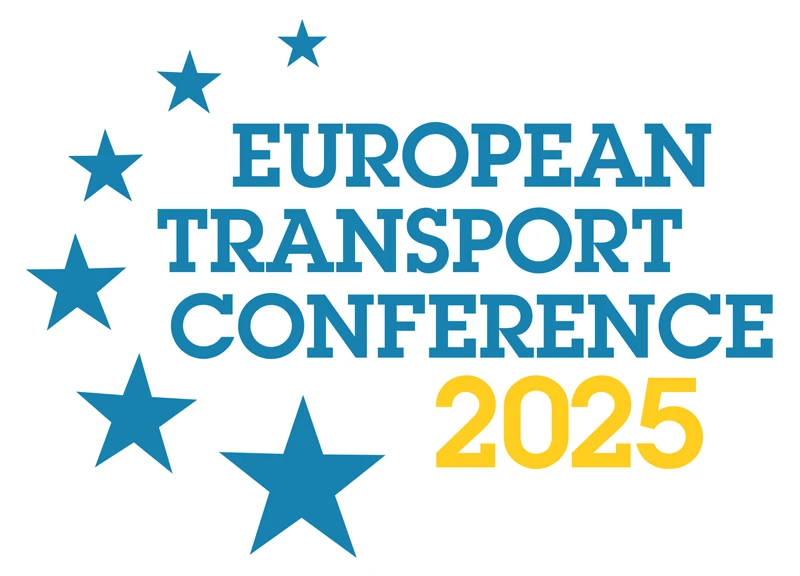-
Past ETC Papers

Browse, search and view papers from the past AET Conferences.
-
Members' Area

AET promotes networking and exchange of ideas, information and opportunities amongst members.
Conference Papers 2021
Online
ETC Conference Papers 2021
Carsharing and ridesharing models of driverless vehicles
Seminar
Day 2 (14 Sep 2021), Session 6, NEW MOBILITY, 16:00 - 18:00
Status
Accepted, awaiting documents
Submitted by / Abstract owner
Sayed Faruque
Authors
Sayed Faruque
Achille Fonzone
Grigorios Fountas
Short abstract
The research mentioned in this paper provide insight into future DC use for carsharing and ridesharing. With this view, a survey was conducted among Edinburgh population to unearth the sharing possibilities with underlying factors of present sharing,
Abstract
This research endeavour aims at providing insights into whether and how respondents are likely to own and use driverless cars (DC) on a shared basis in Edinburgh. With the rapid advancement in automation and robotics, DCs can replace human driving to a significant extent. Personal use of DC may result in more instance road traffic condition. Empirical findings discussed the benefits of using shared DC. The deployment of shared DC s and usage can cut traffic volumes and offer more efficient car usage. Besides, the shared use of DC can offer affordable mobility and can make cities more liveable. Existing research discussed possible shared DC choices within a large urban context where the carsharing and ridesharing at the household levels are vastly underrepresented. The proposed study applied a four-step sequential modelling framework to assess the preferences for various DC carsharing and ridesharing scenarios among the Edinburgh respondents. We conduct an online survey within the city of Edinburgh. By following the Scottish Index of Multiple Deprivation (SMID) approach, the survey was sampled, and invitations were distributed to 7,500 randomly selected Edinburgh addresses during August - December 2019. Based on the collected data an ordered probit model was applied to assess respondents' carsharing and ridesharing preferences with underlying factors concerning present travel sharing attitudes, sharing factors, personality, social norm attitudes and socio-demographic characteristics. A five-point Likert scale recorded data on DC carsharing and ridesharing preferences (e.g., very unlikely - very likely).
Overall, occasional use of DC sharing with close contacts was the likely scenario for carsharing with DC. Statistically, respondents' likelihood to accept driverless taxies is significant than to shared use of DC. Respondents are significantly inclined to share the ride with their family members than strangers. Ordered probit model results indicated that higher car-owning, frequent household car driving respondents who are influenced to preserve the environment are inclined to use private DC. Highly educated upper 55's are averse to use private DC. For driverless taxi use, higher-income (> £50000 per year) working-class (Age 23-55) with cooperative and modest personality are the likely factors. For driverless taxi use, present sharing attitude is a significant factor while a household with children is opposed. Factors for considering DC rideshare with family are similar to private DC with outer suburban living being the additional factor. On the contrary, for DC rideshare with a family member with stranger, higher-income, agreeable personality, a household with no children, and city centre living millennials are the significant factors.
Personality-wise, the survey sample indicated that 54% of the respondents are contentious, with 76% influenced by social expectations to preserve the environment. Nearly one third (29%) of the respondents surveyed were millennials. About 44% of the respondents belonged to the households with annual income over $50000. Among the surveyed households, 55% don’t have any children, and 44% live within Edinburgh's inner suburb.
Concerning the sharing partner and travel regularity, aggregated carsharing and ridesharing models yielded opposite results. Travel regularity (e.g., regular, occasional) was the leading factor to choose DC carsharing. The aggregated carsharing model results indicated that people are not likely to accept regular travel with DC. People are inclined to use Driverless taxi than to use private DC.
In contrast, travel sharing partner (e.g., known, stranger) proved to be a significant factor to choose DC ridesharing. Riding alone with DC is preferred then to share the ride with a stranger. Travel regularity is not a significant factor influencing the rideshare choices. Respondents were significantly inclined to share the ride with their close contacts and family members than a stranger.
Programme committee
Transport Models
Topic
Inclusion and diversity in transport
Documents:
No documents yet.
Association For
European Transport
Forester House
Doctors Lane
Henley-in-Arden
Warwickshire, UK
B95 5AW
+44 (0) 15 64 793552
VAT number: 710 1866 64
Conference Supporters & Endorsers




Legal Entity
The Association for European Transport is registered as an Association ('vereniging') with the Chamber of Commerce for Haaglanden in The Netherlands under company number 27170096.
Built on Zenario




